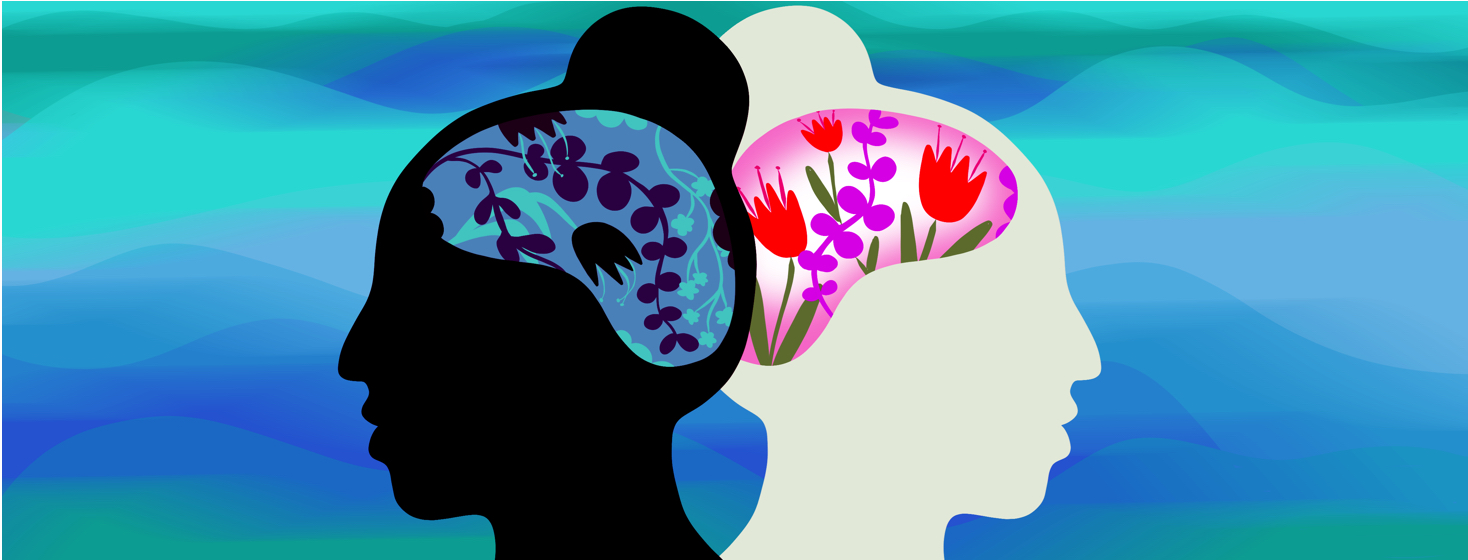How Are You Feeding Your Mind As You Battle Lupus?
Lupus can really play tricks with our minds. It can have us thinking that we can't do anything in our lives. Sometimes it even hits us with anxiety and paranoia in our days. Unfortunately, those feelings of worry and fear can leave us in a state of depression and mental anguish.
Where do these feelings come from?
It is natural to experience sadness or discouragement while managing a chronic illness like lupus. You may have to deal with stress by choosing proper treatments or different physical constraints from pain from lupus. Most times, these feelings are temporary. Other times they may become chronic and lead to depression. When depression affects your ability to live daily and enjoy life, it's important to find help. Hence, addressing your depression will lead to more compassion for yourself and help you manage your lupus a little better.
Lupus and depression
Complications of physical sickness commonly generate emotional exhaustion. Add concerns about the economy, society, and workplace, and it's even more magnified. At times, depression symptoms can decrease as you receive treatment to control flares and pain. It's also important to understand some medications can cause some of the difficult feelings you may deal with.
Ways to help yourself
There are many ways I have learned to help myself deal with negative feelings in my lupus fight.
- See a therapist. Don't be ashamed to go and see a therapist that can help you sort through those difficult feelings.
- Take medication. Sometimes, it can be clinical depression, and medication is needed to help balance you out. There are several prescribed medications that can ease the effect of clinical depression. In addition, anti-anxiety meds can help ease worry and fearful feelings.
- Find different ways to reduce pain. The chronic pain of lupus can lead to the development of negative and difficult feelings and depression. Therefore, it is important to try things that can reduce your pain like yoga, acupuncture, or meditation.
- Exercise more. As much as you don't want to move, it's important that you do. It never has to be a hard exercise routine. It can be a simple walk or dance. Do what you can manage.
- Sleep more. Oftentimes, it's easier said than done but is absolutely necessary to get more sleep, and overcome or ward off those difficult feelings.
- Speak well of yourself. Wallowing in self-pity, for me, only heightens my negative feelings. The inner language that has harmed me, like, "I'll never get better. Why me? Or I am not strong enough to beat this," has been unproductive in my fight. As a result, I had to change how I spoke to myself about lupus.
Feeding my mind
As I have learned to speak to myself differently about lupus, consequently, I had to take notice of what I fed my mind. Just as I nourished my body, I had to do the same for my mind. Everything from the music I listened to, the food I ate, and the clothes I wore affected me. I believe everything has vibration and energy and can affect me negatively or positively. In order to be the best version of me as I battled lupus, I began to feed my mind positive energy. Ultimately, making a conscious shift in the things I watched, listened to, and allowed to occupy my mind. In other words, changing what I allowed in my space. This significantly changed the way I interacted with myself in my battle.
In conclusion, it's difficult to move from pain to change your lupus mindset purposefully, but overall, it will help you deal with lupus fully. So, begin to ask yourself, what are you feeding your mind? Is it helping you or harming you? Remember, just as you eat healthy food for your body, you have to ingest healthy food for your mind as well.

Join the conversation